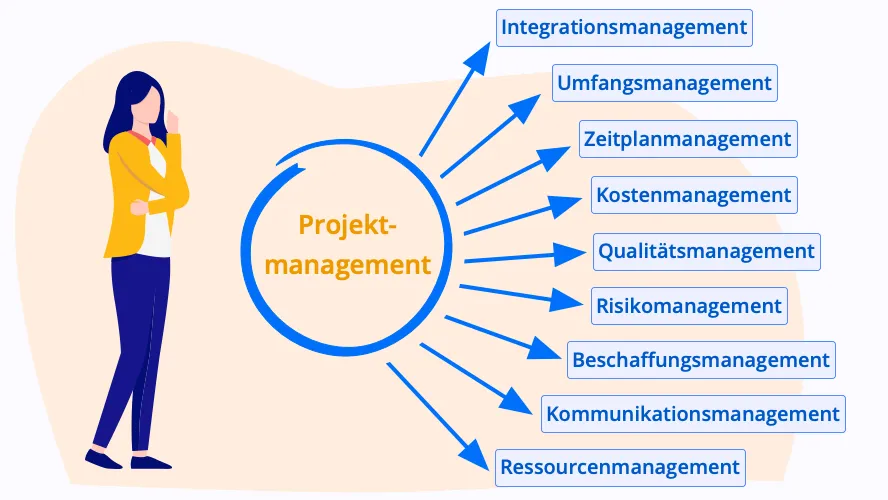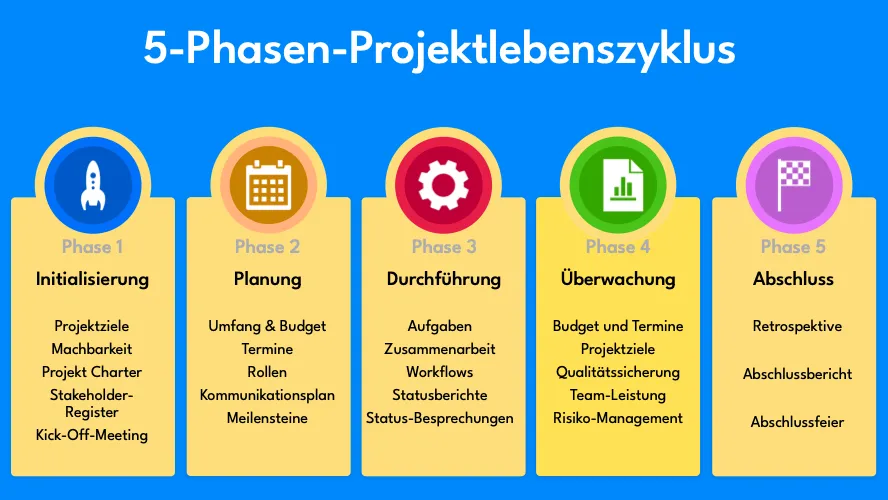Are you constantly answering emails, completing tasks, talking to your coworkers, and trying to eat lunch at the same time? Is your team working under a lot of pressure and you’re still not making any progress? Then you might want to rethink multitasking during project management.
For a long time, we’ve suspected that multitasking isn’t effective. Now, the detrimental effects of multitasking have been confirmed by several studies. To put it short: if you deal with too many things at once, you can’t work effectively. Multitasking harms both short and long-term corporate success because it eats up a lot more time than you may think.
Multitasking Wastes Time
In most companies, employees don’t work on just one project within a time frame. Typically, people are working on multiple projects. We also have to account for countless emails, phone calls, and meetings during the day. People are multitasking all the time.
You might think that if you work on several things at once, you’ll be able to complete tasks quicker. Don’t forget: no matter what, there are only 24 hours in a day. If you have two tasks that should take six hours each, then you have twelve hours of work to do.
According to the American Psychological Association, switching tasks can cost you up to 40% of productive time. Our brains simply aren’t wired to seamlessly switch from task A to task B on short notice. Even though it may only take a few seconds for us to switch tasks, all that time adds up during the day. Multitasking actually makes you spend more time on what you’re trying to achieve, but not in a productive manner.
What makes things worse is that it takes more time for us to switch over to complex tasks. Complexity brings in more room for error when hitting the mark counts the most. When you make mistakes, then you have to spend even more time on fixing them.
You’ve heard it many times, and you’ll hear it again: time is money. Any time that we waste in the workplace costs our companies. Multitasking costs a lot.
How to Stop Multitasking
Let’s think about why we multitask in the first place. When we have many different things to do, it’s totally understandable that we get stressed and try to get as much done as possible. The problem is that when we multitask, we are mixing up two very important words in project management: importance and urgency.
If we make use of the Eisenhower principle, then we can minimize multitasking in project management. The Eisenhower principle teaches us how to categorize tasks based on importance and urgency. These categories help us determine which things we need to do now and which can wait.
Here’s a quick summary:
- Important and urgent things need to be done right away. There’s a lot counting on them. For example, if your boss is calling you to discuss something critical, then you need to pick up the phone.
- Important but not urgent things do not need to get done right now. They are still critical, but you don’t need to run to pick up the phone. If your client is expecting your product in three weeks, then you need to deliver it. You just don’t have to rush to get it done at this very moment.
- Unimportant but urgent things pop up during the work day. They have nothing to do with achieving your product’s goals, but sometimes someone calls you and you feel the need to pick up. You don’t always have to! Focus on the important things you’re doing in the moment.
- An example of an unimportant and not urgent thing is deciding to clean your desk right in the middle of working on an important project. It’s important to stay tidy, but sometimes it’s just not the appropriate time to break out the paper towels. Wait until you’ve got down time.
More Information about Project Management
Check out our articles about deadline management tips and 7 effective project management methods!

Gabriella Martin
Editor and Writer
Gabriella Martin is a Yale University graduate and holds a Master's degree in German Literature from the University of Tübingen. She loves explaining complex things in simple terms.

